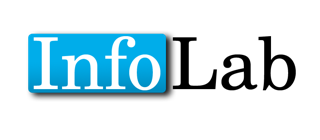Did you mean
6
results found in 9 ms
Page 1
of 1
Workform
Book_Short_Form
Id
274df549-b4f1-492f-95b1-b37e517d424d
Author Monographic
Pratt, Michael G.; Majken Schultz; Blake E. Ashforth; Davide Ravasi
Author Combination
Pratt, Michael G.; Majken Schultz; Blake E. Ashforth; Davide Ravasi
Title Monographic
THE OXFORD HANDBOOK OF ORGANIZATIONAL IDENTITY
Title Combination
THE OXFORD HANDBOOK OF ORGANIZATIONAL IDENTITY
Place of Publication
New York
Publisher Name
Oxford University Press
Date of Publication
2016
Availability
FF: Organizations
ISBN
978-0-19-968957-6
Notes
LCCN: 2016950871 Contents: Organizational Identity: Mapping Where We Have Been, Where We Are, and Where We Might Go Section 1: Mapping the Organizational Identity (OI) Field Great Debates in Organizational Identity Study Measuring organizational identity: Taking Stock and Looking Forward Organizational Identity, Culture and Image Cross-Level OI Identity Change ; Temporality Multiple OI ; Hybrids Section 2: Critical Perspectives on OI Organizational Identity and Organizational Identity Work as Valuable Analytical Resources Organizational Identity: The Significance of Power and Politics Organizational Identity: A Critique, Section 3: Integrative Models of OI Optimal Distinctiveness Revisited: An Integrative Framework for Understanding the Balance between Differentiation and Conformity in Individual and Organizational Identities Bridging ; Integrating Theories on Organizational Identity: A Social Interactionist Model of Organizational Identity Formation and Change Section 4: How Individuals Relate to OI How Do We Communicate Who We Are? Examining How Organizational Identity Is Conveyed to Members Mobilizing Organizational Action Against Identity Threats: The Role of Organizational Members' Perceptions and Responses Organizational Identity and the Undesired Self Section 5: Sources and processes of OI Organizational Identity Work ReMembering: Rhetorical History as Identity-Work, Roy Suddaby Materiality and Identity: How Organizational Products, Artifacts, and Practices Instantiate Organizational Identity Making Sense of Who We Are: Leadership and Organizational Identity Section 6: OI and the Environment Organizational Identity and Institutions Institutional Pluralism, Inhabitants, and the Construction of Organizational and Personal Identities Organizational Identity and Institutional Forces: Toward an Integrative Framework Section 7: Implications of OI Organizational Identity and Innovation Planned Organizational Identity Change: Insights from Practice Identity Construction in Mergers and Acquisitions: A Discursive Sensemaking Perspective Fostering Stakeholder Identification Through Expressed Organizational Identities On the Identity of Organizational Identity: Looking Backwards Towards the Future
Abstract
The topic of organizational identity has been fast growing in management and organization studies in the last 20 years. Identity studies focus on how organizations define themselves and what they stand for in relation to both internal and external stakeholders. Organizational identity (OI) scholars study both how such self-definitions emerge and develop, as well as their implications for OI, leadership and change, among others. We believe there are at least four inter-related reasons for the growing importance of OI. OI addresses essential questions of social existence by asking: Who are we and who are we becoming as a collective? It is a relational construct connecting concepts and ideas that are often viewed as oppositional, such as "us" and "them" or "similar" and "differen". OI is also nexus concept serving to gather multiple central constructs, also represented in this Handbook. Finally, OI is inherently useful, as knowing who you are is the foundation for being able to state what you stand for and what you are promising to others, no matter their relation with the organization. The Handbook provides a road-map to the OI field organized in over 25 chapters across seven sections. Each chapter not only offers a broad overview of its particular topic, each also advances new knowledge and discusses the future of research in its area of focus.
Call Number
950.P7.O8
Keywords
Organizations ;
Theory ;
6
results found.
Page 1
of 1



